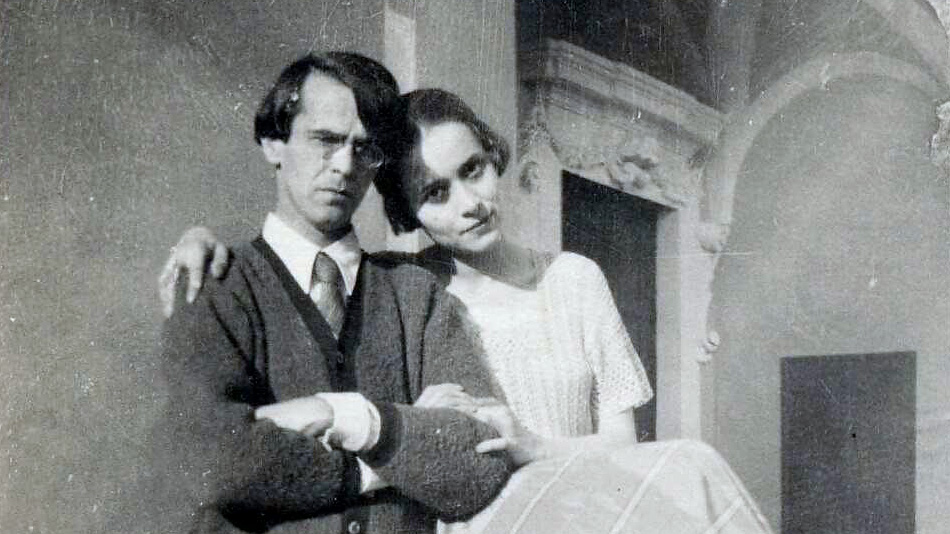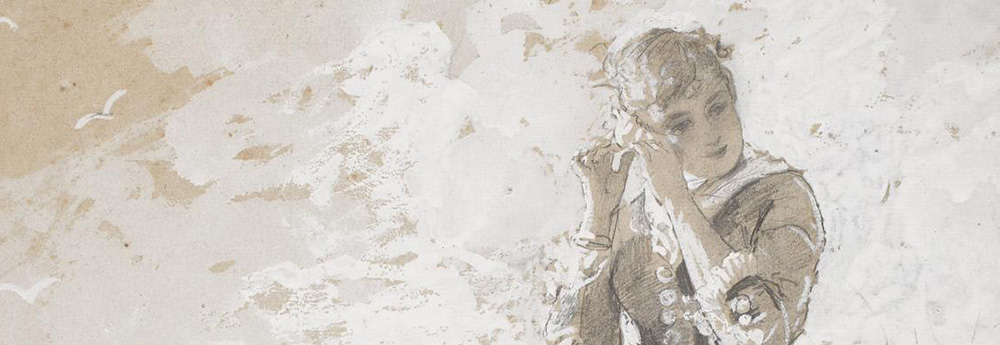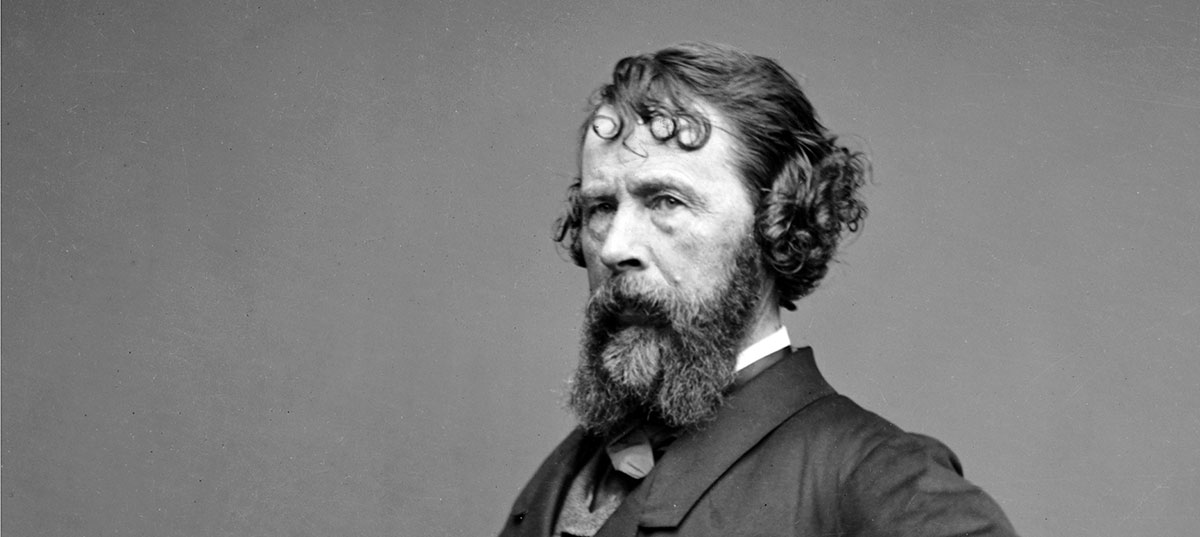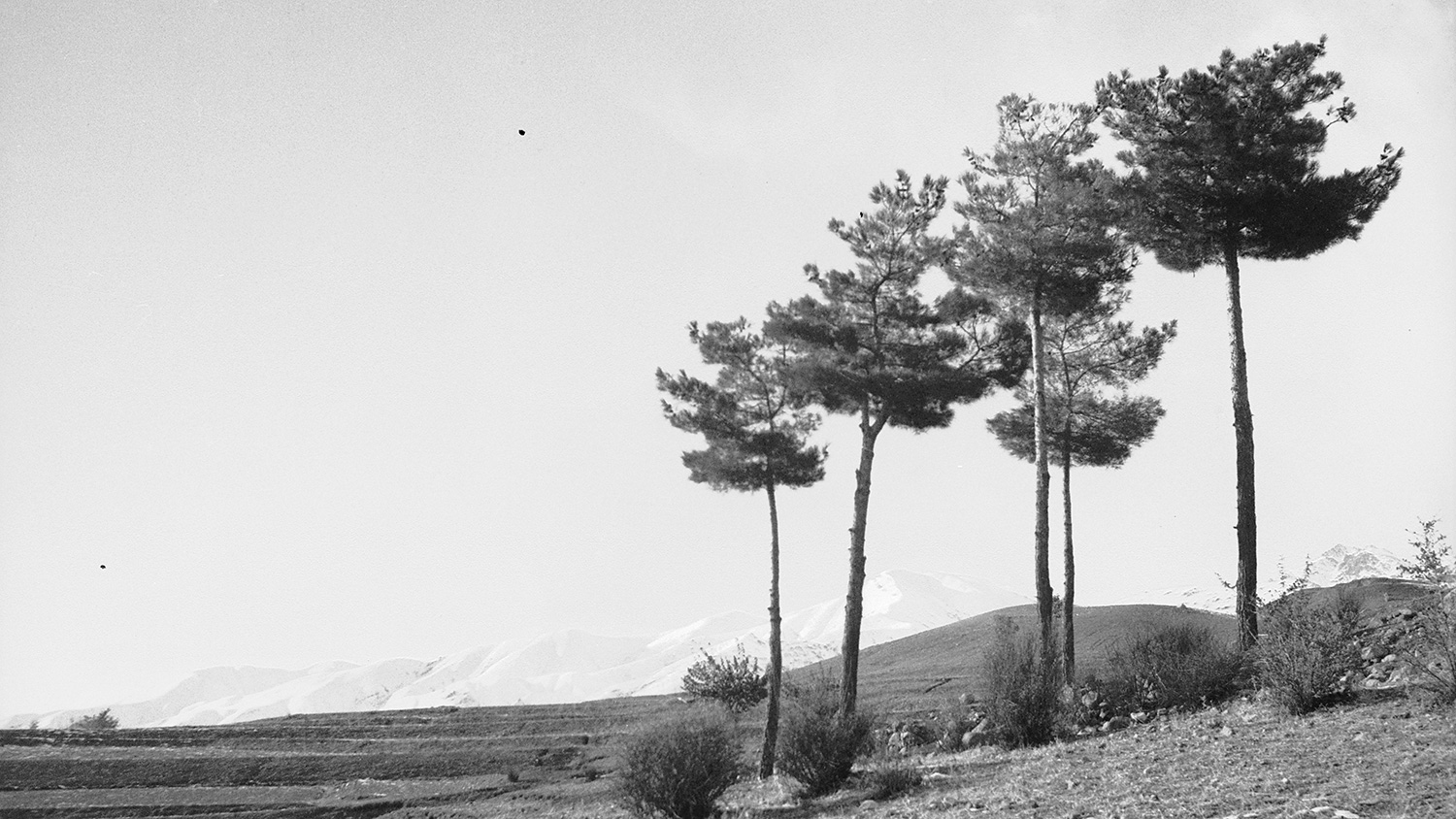December 2019
testimonia
8 December 2019, around 16.05.

Vladislav Khodasevich and Nina Berberova, Sorrento, 1925.
We perceived everything that happened then as an omen. But of what?
It is difficult to know how to start thinking about Necropolis. Before I finished the book, I was certainly inclined to be dismissive – just so much gossip about people I’d never heard of, who happened to be behaving badly. That I did not (and do not) know much about the Silver Age of Russian poetry did not help. Certainly, a few names were familiar, such as Bely, Blok, Gorky – even Gumilyov peeking from behind Akhmatova’s skirts. Others meant nothing to me (Muni, Gershenzon) or almost nothing – like Bryusov, who was only familiar because Yerevan State University, where the more ambitious of the students from Goris went, is named after him.
It was tempting, then, to think little of Necropolis, to point out a few funny passages (as when Mandelstam showed up at Gumilyov’s revival of the Petersburg Poets’ Guild only to ‘drink the tea and eat the sweets’ [106]), and leave it at that. 1 The first three sections, in particular, seemed to be in a secret language, excluding rather than enlightening:
Our endless discussions, which touched upon an endless number of topics, gave rise to our own peculiar language consisting of quotations, allusions, and terms that were established gradually over time. We could understand each other from the slightest allusions; other people couldn’t understand us at all – and were offended by it. But at times it felt as though we had lost our ability to speak in a generally accepted language. I must admit that other people probably found our company rather insufferable. (88–9)
Indeed, Khodasevich makes fun of this sort thing when he recounts how Bely, running a bit mad in Berlin, would ride the U-Bahn, ‘conducting himself entirely à la Prutkov: whispering the Russian words, which were incomprehensible to the people around us, into my ear and shouting out the German ones for the whole wagon to hear’ (72). Despite this, the book is engaging, and there is something to gain from listening in on this secret language, trying to decipher if not the meaning, at least a meaning. It is, after all, a book of ideas, so there is a thread to follow, even if it remains hopelessly tangled for this particular reader.
At first, it helped to view each section in terms of its prevailing mood. The section on Bryusov, for instance, is marked by contempt – the sneer of disdain for the man and everything he did in literature (his poetry ultimately dismissed by its increasing reliance on mechanical formulae to the detriment of meaning) and life (an egregious bully) is present throughout. Using this clew, 2 the other sections yielded a sort of sense, ranging from pity (‘The Death of Renate’) to enlightened bafflement (on Bely) to affection (Gershenzon). The sections on Yesenin (a bit of a poser) or Blok and Gumilyov left a more subtle impression, either because of the greater distance of the relationship or the lack (or perhaps presence?) of stronger feelings.
Although the subjects were dead by the time Khodasevich wrote about them (it is, as the title makes clear, a gathering of the dead), these are not eulogies; in some cases the memoir was a chance to get the last word, but in others it was a reckoning – perhaps with men he did not imagine he would outlive. They are not arranged chronologically, either by death of the subject or composition, but they form an uneasy, melancholy sort of narrative. What, after all, does one say about one’s friends, one’s acquaintances, one’s nemeses when they are gone?
In the final section Khodasevich presents one of his contemporaries reacting to part of Necropolis, as Gorky (a profoundly critical reader, who approached even the daily newspaper with a photographic memory and a red pencil [202f.]) reads the memoir of Bryusov:
‘What you’ve written is harsh, but – magnificent. When I die, please write something about me.’
‘All right, Alexei Maximovich.’
‘You won’t forget?’
‘I won’t forget.’
- Nabokov’s impish picture in Speak, Memory of a poet who ‘never rises from the hard chair on which he sits, his thin legs crossed, his eyes glittering with malevolence and wit […] the perfect frankness he indulged in when voicing his dislikes made him some terrible enemies among the most powerful critical coteries’ (275) does not necessarily inspire one to look too closely.[↩]
- I remember learning this word from Great Expectations, when I first thought it was a typographical error. Thus one learns.[↩]
a portrait
16 December 2019, around 13.32.

Winslow Homer, ‘Girl with shell at ear’ (1880) 1
To live in such a place was, for Isabel, to hold to her ear all day a shell of the sea of the past. This vague eternal rumour kept her imagination awake.
Six months in, it is safe to say that the book group’s reading of The Portrait of a Lady is not going well. It is a well established group; we’ve gotten through Ulysses and Dubliners, and only the fear of encountering too much Stephen Dedalus 2 kept us from A Portrait of the Artist as a Young Man – we chose a rather different Portrait instead. The choice has not been, if one were put to the point, entirely, shall we say, happy.
We are reading it according to the Atlantic Monthly serialization and have just finished the April 1881 number (enter Gilbert Osmond, Pansy Osmond, and two nuns, followed shortly by the Countess Gemini). 3 It is an awkward moment, and even I, one of the two champions (as it were) of the novel, am finding the going difficult. The scene-setting in Florence – a parallel, perhaps, with the tableau that opens the book – has a guidebook feel that is irritating in James, though it is charming in E.M. Forster. One suspects (silently, strongly) that the effect is intentional, is affected, and that makes it worse. This, at least, was the kernel of my irritation, and certainly four chapters in the dubious company of Mme. Merle and Gilbert Osmond do little to restore one’s faith in narrative felicity.
He was certainly fastidious and critical; he was probably irritable. His sensibility had governed him – possibly governed him too much; it had made him impatient of vulgar troubles and had led him to live by himself, in a sorted, sifted, arranged world, thinking about art and beauty and history. He had consulted his taste in everything – his taste alone perhaps, as a sick man consciously incurable consults at last only his lawyer: that was what made him so different from every one else. Ralph had something of this same quality, this appearance of thinking that life was a matter of connoisseurship; but in Ralph it was an anomaly, a kind of humorous excrescence, whereas in Mr. Osmond it was the keynote, and everything was in harmony with it.
Part of the problem, for the book group at least, is that it is a different sort of reading. Certainly James enjoys his neo-Gothic flourishes as much as the next novelist, but unlike Joyce (our pattern author), these flourishes all seem to be made of plaster, have no bills posted, and don’t appear to hide any skeletons of interest: they are the sole focus of attention – there is no recurring man in a mackintosh to reward one’s notice, no involved family backgrounds to provide chiaroscuro. As Isabel Archer observes: ‘She felt that Madame Merle’s ties always somehow had histories, and such an impression was part of the interest created by this inordinate woman.’ The reader, too, feels that these characters somehow have histories – but the histories James chooses to present are not necessarily the ones of primary interest. 4
‘I don’t pretend to know what people are meant for,’ said Madame Merle. ‘I only know what I can do with them.’
Part of the problem is Miss Archer herself: we are told that she is quite a ‘superior’ person (though not quite so superior as Mme. Merle), and she seems much admired by those she encounters, but there is the suggestion that she is not, as one might say, all that. We are told that she has depths of character (or nature), ‘but the depths of this young lady’s nature were a very out-of-the-way place, between which and the surface communication was interrupted by a dozen capricious forces.’ The reader is invited to root around in this out-of-the-way place, in hopes of … what? The ‘great fund of life’ that she carries about within her? What does that consist of but the digested remnants of ‘kindness, admiration, bonbons, bouquets, the sense of exclusion from none of the privileges of the world she lived in.’ She is, perhaps, sincere, but she is not particularly admirable: ‘With all her love of knowledge she had a natural shrinking from raising curtains and looking into unlighted corners. The love of knowledge coexisted in her mind with the finest capacity for ignorance’ (ch. 19).
Self-loathing Bostonians are a breed unto themselves; they undermine what fascinates them.
I remember, when I first went off to college, that the college president gave a speech to welcome the first-year students, and during the course of this speech (most of which I have happily forgotten), she mentioned The Portrait of a Lady, and even now my lip reflexively curls at what a poor model the book is for any undergraduate. I thought the choice pretentious and, instinctively, I thought it unkind. When I first read the book some years later, I was swept up in its language, its over-richness – it was like being a houseguest invited in, made comfortable, and expected to watch the host’s performance of hospitality, with no obligation to provide anything but attention. I was overseas, then, and alone, and this fictive camaraderie was a comfort. Now, reading it with others, I wonder whether that first impression – based on sublime ignorance – was not, after all, more correct.
- The temptation with Henry James is alway to illustrate him with John Singer Sargent, as though they were in some way working on the same project. That does a disservice to both. I also thought about looking out one of the paintings from the Uffizi that Mme. Merle mentions, but that would give rather the wrong impression.[↩]
- In my opinion, any quantity where x > 0 is too much Stephen Dedalus.[↩]
- The slow pace might be the problem – it is a book rather to be binged than savored.[↩]
- On the whole, we tend to agree that we might prefer Portrait of an Idle Consumptive: The Ralph Touchett Story – also known as The Undecorative Moustache.[↩]
the idleness ethic
21 December 2019, around 4.42.

Nathaniel Parker Willis, photographed by Matthew Brady (ca. 1850s)
…the smell of earth and flowers coming to my nostrils once more, I begin to feel an interest in several who have sailed with me. Humanity, killed in me invariably by salt water, revives, I think, with this breath of hawthorn.
It’s a curious thing, agreeability. I did not think too much about it when I chose ‘the agreeable eye’ to represent, in a small way, the nature of this site, just as I did not think too much when naming it, but picked a word that seemed to me agreeable out of what I had recently read. The image, anyhow, is from a late nineteenth-century handbook of physiognomy, and was one of the few images that looked anatomically possible. In perusing the text some time later, I found that the ‘agreeable eye’ belonged to one N.P. Willis, 2 pictured above (looking much less agreeable, but with rather more facial hair). 3
Editors have a very sublime way of lumping Europe, Asia, Africa, and America, and under the diminished monosyllable of ‘the world,’ spanning it with their reflections as they would shade an ant-hill with an umbrella.
For all that he was one of the highest paid magazine writers in America in the 1840s, Willis appears to have been a dull dog, prose-wise, notable for ‘a shocking mixture of gossip, celebrity expose, and autobiographical confession.’ 4 Born to a family of publishers, possessed of an amiable, rather dandyish persona, 5 Willis worked for a variety of publications (as editor or author), was loosely associated with the Knickerbocker Group, and founded what later became Town & Country. 6 Although first known for his poetry, such fame as he had rested on his ability to present culture as an alienable good, which one could get at second-hand, just as good, but at a much lower price. 7 He took an unsentimental view of literary work, and noted he was ‘obliged to turn to account every trumpery thought I can lay my wits to. My rubbish, such as it is, brings me a very high price.’ 8 It would be safe to say that, in the annals of U.S. literary history, he is ‘a footnote to someone else’s story’ 9 – or, at the very least, three someones: his sister, Fanny Fern; 10 his servant, Harriet Jacobs; 11 and his protégé, Edgar Allan Poe. 12
What most surprises me in the past, is, that I ever should have confined my free soul and body, in the very narrow places and usages I have known in towns. I can only assimilate myself to a squirrel, brought up in a school-boy’s pocket, and let out some June morning on a snake fence.
If you have troubled your way through the footnotes, you will have gathered that N.P. Willis was not a particularly laudable character. Such virtues and vices as he may have possessed seem to have been of the passive sort, though: generally a matter of omission rather than viciousness. Indeed, he seems to have been, well, simply agreeable – even when it might have been better, more prudent, more just to disagree. In any case, he has been forgotten, save by those looking to write articles on the author as celebrity in nineteenth-century America or those who happen to flip through an old handbook of physiognomy. 13
- These quotations gathered rather by sortes than study.[↩]
- Poe, writing in 1846, notes of Willis that ‘Neither his nose nor his forehead can be defended; the latter would puzzle phrenology.’[↩]
- It is not a surprise that he looks so irritable in Brady’s portrait: in poor health, he had already outlived his fame and was embroiled in scandal and in quarreling with his sister.[↩]
- Mary Chapman, ‘Performing Culture,’ p. 153; plus ça change…[↩]
- In a private letter to literary agent James Lawson, Willis Gaylord Clark (a minor poet and twin brother of Lewis Gaylord Clark, editor of The Knickerbocker magazine) went so far as to call N.P. Willis ‘an impersonal passive verb – a pronoun of the feminine gender’; quoted in Kenneth Silverman, Edgar A. Poe: Mournful and Never-ending Remembrance (New York: HarperCollins, 1991), p. 223.[↩]
- From privilege himself, he catered to the aspirations of others; if this particular case is of interest, see the essay by Maura D’Amore.[↩]
- This more or less cribbed from two articles by Sandra Tomc.[↩]
- Quoted in Silverman, p. 224 (or so – I started this post in 2016 and have long since returned the library book).[↩]
- Thomas N. Baker, Sentiment and Celebrity: Nathaniel Parker Willis and the Trials of Literary Fame (Oxford: OUP, 1999), p. 4.[↩]
- Fanny Fern, née Sarah Willis, provides an unflattering view of her brother in Ruth Hall, her work of ‘autofiction’ (as the kids on Twitter are calling it these days).[↩]
- I hope to consider Harriet Jacobs, author of Incidents in the Life of a Slave Girl, at greater length some other time; it will be sufficient to say that Jacobs wrote her memoir in the evenings while working as nanny at Idlewild, Willis’s estate, and Willis himself appears as the Southern-sympathizing Mr. Bruce. The character is, as one would guess, something of a moral non-entity; more attention is paid to his wives.[↩]
- Willis provided Poe with a literary platform, and indulged some of the poet’s more peculiar attempts at publicity. See, e.g., Silverman, p. 250f., or the essay by Richard Benton.[↩]
- Part of me wanted to spend this final paragraph in self-reflection, but the occupation did not prove agreeable.[↩]
the cruelest way
28 December 2019, around 15.49.

A view near Teheran, photograph by Annemarie Schwarzenbach
Bearings, landmarks, disappeared, as they would from a skiff in mid-Atlantic.
Slowly I began to understand. This was the beginning of the fear. And I can never get over it, never forget it.
Every detail had the sharpness not only of something one sees for the first time but of a beauty that can be compared with nothing else.
Since reading Herodotus, I have had a lingering fondness for any travel writing that turns its attention towards and past Asia Minor. 1 It is not surprising that Maillart’s The Cruel Way and Schwarzenbach’s All the Roads Are Open drew my interest. The premise was promising – two women, starting in Yugoslavia and travelling over land and over sea to Afghanistan in a new Ford purchased just for the trip – but it was impossible to approach the journey directly. Every point of access was barred by circumlocutions or the dubious charms of undergraduate marginalia in out-of-print books. 2 As much as they were rushing towards experience, there was much that they were trying to escape, particularly about themselves.
Isn’t it wrong to escape, make a detour and be lost, all of which have led me here to the farthest-flung edge of the world? Wouldn’t I have had a good, courageous life if only I had been able to resist sickness and fear? Will I be made to face the consequences just because I had nothing to counter a nameless and agonizing desperation?
All the Roads Are Open is a broken book, clearly begun with a plan in mind that partway through has to be abandoned, despite the best of intentions. It begins with an assured tone and the first person plural, but within its short span of pages it finds more questions than it answers, all personal, all individual, and comes increasingly to rely on the singular, on visions from angels. There is a temptation, when reading, to engage in cheap psychologizing, to hint that addiction, sexuality, depression, or an unhappy childhood are the source of authorial discontent. This temptation may have been present when writing, too, but this is das Ungedachte. The moments of beauty in the book fall between these two excesses, in moments of seeming frankness, a setting aside of personæ (journalist, melancholic) that appears more often in one of Schwarzenbach’s other books, Death in Persia. For the remainder of the book she seems to be trying to explain, as she tried to explain to the British customs officials in the Khyber Pass, where she has come from, where she is going, and why she has not been in any of the expected places.
But I felt an atmosphere of danger: we were in a big town which might offer dangerous temptations. […] I was so absorbed in my thoughts that I never knew what people had been telling me. I carefully avoided speaking about the past.
The Cruel Way, too, promises to be one book in its early pages – travel memoir as anatomy of friendship – but then settles into the cataloguing tradition (so many tiles in so many shades of blue on so many distant buildings, so many worried, sidelong, silent glances) for reasons that the author does not fully explore – or that I, a year after reading it, cannot remember. This is the difficulty of playing the therapist in the physical journey as metaphorical path to wellness: if one is not suited to the role, the companion, the patient (all patience) is left behind. Maillart recognizes this, to a certain extent, and feels guilty, as perhaps she should.
Yes, this book is about errant ways and its subject is despair. But if the author’s sole aim is to rouse the sympathy of her readers, she is bound to fail in this case—for we can only hope for sympathy and understanding if our failures can be explained, our defeats are valiantly fought and our suffering is the inevitable consequence of rational events. Although we may be occasionally happy for no reason, it is unacceptable to be unhappy for no reason. And in difficult times like these, one is supposed to be effortlessly capable of selecting the enemy and the destiny that suits our strengths.
I will admit, after the fact, that I was looking to experience anew The Road to Oxiana, but preferably as written by a woman. Equally charming whether travelling en prince or roughing it, Byron turns a wry eye both to those he encounters and to his own pretensions. He is frank about many of the ways in which he benefits from colonialism and equally frank about some of the miseries it engenders. For Byron, the unconscious, the unthought sleeps easily – or at least is not a principal character in his travels, only appearing as a foible or object of mirth: the book is disarming, leavened with humor – an amusing, effective mask.
Strolling up the road towards the minarets, I feel as one might feel who has lighted on the lost books of Livy o an unknown Botticelli. Timurids are too remote for most people to romance over them. But such is the reward of my journey to me.
It is difficult to write a conclusion, because I am not sure I have any to give. The books by Maillert and Schwarzenbach, though ostensibly within the same genre as Byron’s, are something else entirely; if they capture the ennui of travel in the age of late colonialism, that is by the way, but it is an essential element of Byron’s book. 3 While their writing had commercial intent (they pre-placed articles to fund the journey), the trip itself was not wholly a success – and indeed, failed in a way that neither humor nor confession could veil. 4 They are tender books, and I feel tenderly towards them and think of them with an ache – perhaps because there are other roads I am thinking of.
- This sentiment does not bear close scrutiny.[↩]
- It took ages to find a copy of All the Roads Are Open without extensive double underlining, by-gosh-isms, and scattershot marks of interrogation and exclamation. I speak as though I made an exhaustive effort. I did not.[↩]
- And, indeed, in the other books considered in Paul Fussell’s Abroad, which I believe I made notes on earlier.[↩]
- Certainly the trip seemed less successful than Maillert’s 1935 excursion with Peter Fleming, immortalized in Forbidden Journey and News from Tartary.[↩]
meander
29 December 2019, around 11.06.

Looking for new paths to familiar places.
